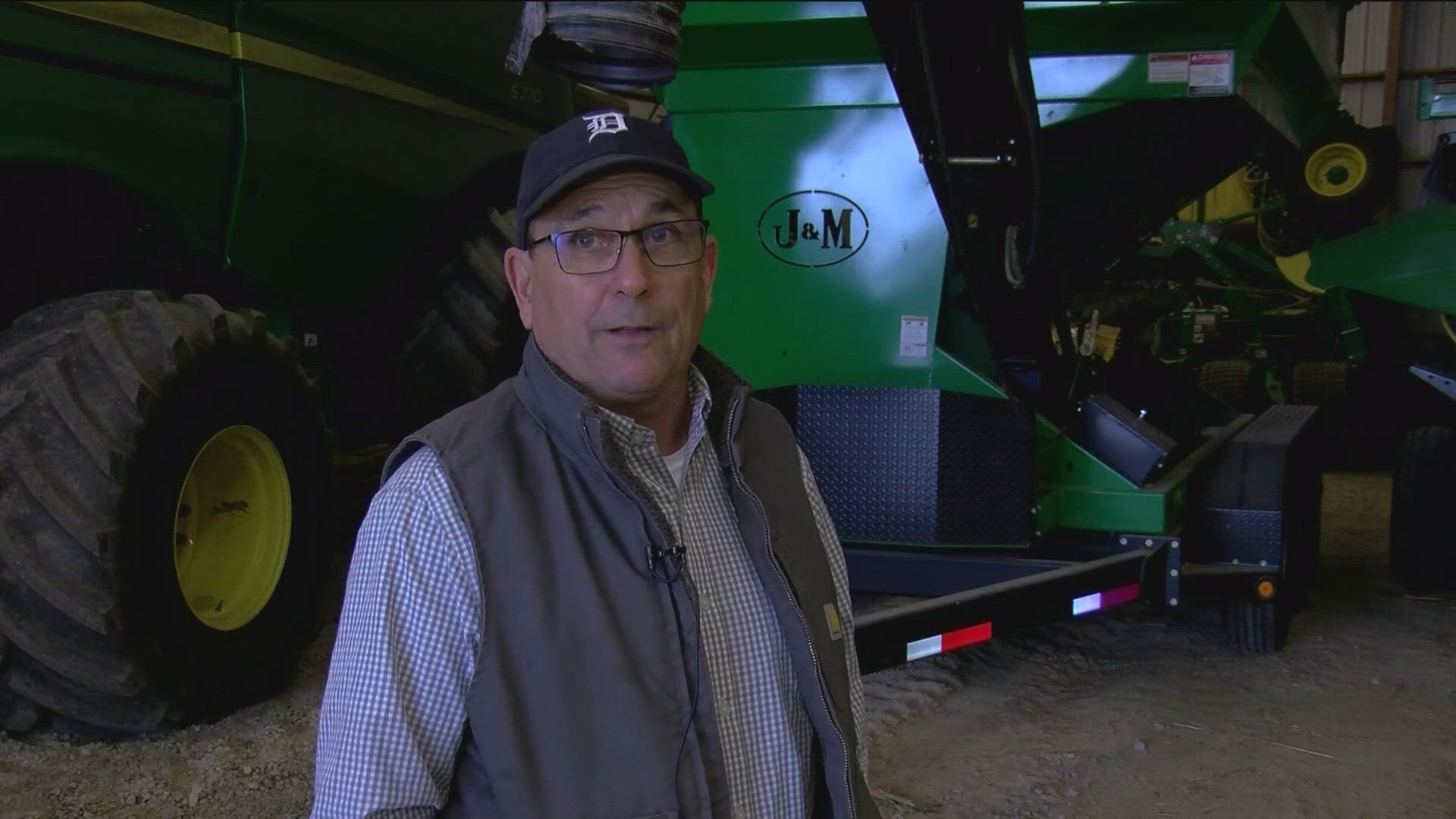PERRYSBURG, Ohio — Half a million people were unable to drink tap water during the 2014 water crisis in Toledo due to harmful algal blooms in Lake Erie.
Every year, agricultural runoff pollutes parts of the lake, according to the Alliance for the Great Lakes. To help keep waterways safe, Gov. Mike DeWine introduced H2Ohio five years ago.
According to the governor's office, enrollment in the program increased by 32% in the most recent sign-up period, which closed on Feb. 2, bringing the total acreage participating to 1.8 million.
We talked to one farmer who says this initiative is helping him improve his water quality effort.
Kris Swartz, a farmer in the Perrysburg area, has been a part of H20hio since it started in 2019 and says it has helped him improve his water quality and has had a major impact on how he runs his farm.
"It's subsurface placement of all the phosphate I use for the entire year, which is one change from H2O, how I used to broadcast and phosphate," he said. "I put it all on with the planter subsurface, which is a better practice for water quality standards."
Swartz said he does his part to cut the runoff by managing fertilizer and filtering nutrients.
This is just one of the ways that Brian Baldridge, director of the Ohio Department of Agriculture, says H2Ohio is delivering clean drinking water and upgrading the wastewater infrastructure in the state.
"We're all in this together and we're all working toward a goal and that's decreasing algae blooms and water quality here in our great state," he said. "Our goals were to be at 2 million acres at the end of (fiscal year 2025) and we are set on pace and on track to hit that mark. We're really excited about that from a water quality standpoint."
Swartz said the program is an incentive for farmers to change what they use for their crops.
"I think, economically, it's really a good way to go," he said. "I think without H2O, a lot of guys couldn't get there."

